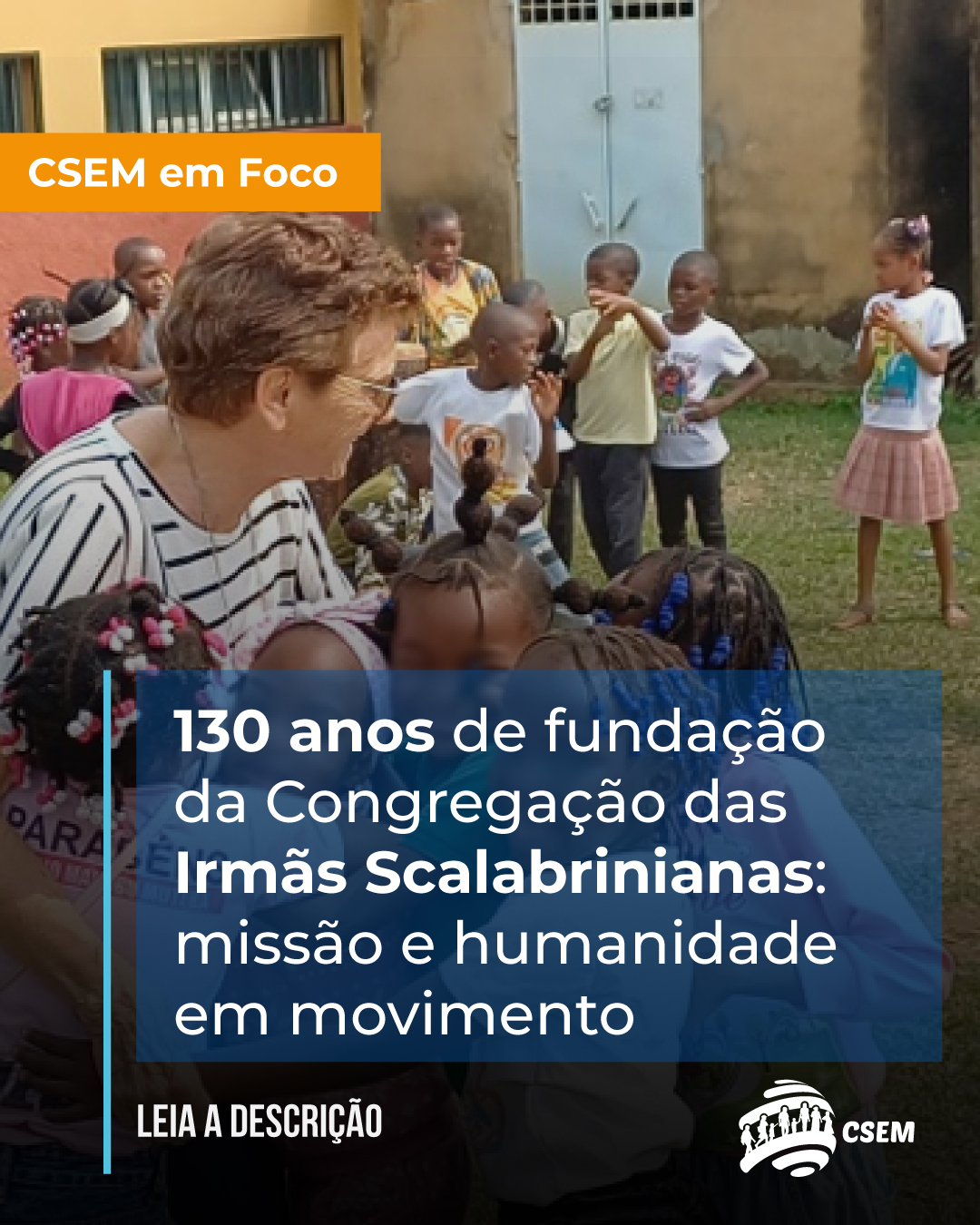October 25, 1895 - 2025. 130 years ago, in Piacenza, Italy, the Congregation of the Missionary Sisters of St. Charles Borromeo - Scalabrinians (MSCS) was born, moved by the impulse of St. John Baptist Scalabrini to “follow migrants with heart and feet”.
Today, on every continent, the sisters continue to listen and act. Their voices help us to understand the deep meaning of this itinerancy.
A life consecrated to the exodus
Sister Edi Maria Eidt, a Brazilian who is the director of Cáritas Diocesana do Uíge (Angola), celebrates 60 years of consecrated life. His journey reveals the essence of the Scalabrinian charism: faith that moves with migrants.
She recalls that her vocation began when she was still a little girl, when she heard a nun talking about a mission in Africa. “It was like a lightning bolt: this is for me, to help others.”
Later, during her master's studies in Sociology in Paris, she experienced what it means to be a foreigner: the language difficulties, the loneliness, the daily commute in a metropolis. “They seem like small things,” she reflects, “but they affect you.” The experience led her to realize “the importance of foreign communities” and the feeling of “being at home” among her own people. For her, even prayer changes meaning depending on the language: praying the Our Father in her mother tongue “has a unique meaning”.
Itinerancy and rootedness
Sister Edi has lived for eight years in the province of Uíge, in northern Angola, a region marked by a border of more than 1,100 km with the Democratic Republic of Congo (DRC). “During the war, many Angolans took refuge in the DRC and, when possible, returned,” she says. Even today, many live without documents, which is why Cáritas and the Pastoral do Migrante are working on civil regularization.

The reality in Uíge is also one of poverty and unemployment. “After the war, young adults left for other provinces in search of work, and this internal migration brought with it a consequence that the Scalabrinian charism challenges us to take on: the abandonment of parents who are already elderly.” To deal with this, Caritas develops community agricultural projects that aim to keep families in the countryside and create dignified living conditions. These initiatives seek to act on the causes of forced migration, promoting sustainable alternatives that reduce the need for exodus motivated by poverty and lack of opportunities.
Another axis of work is access to personal documentation. “There are countless children, teenagers and even adults without birth certificates. How can someone without documentation prove their nationality?” he asks. In 2024, more than 660 children and adolescents were registered, “gaining the opportunity to attend regular school”.
A broad look at the human
With six decades of consecration, Sr. Edi says she has learned that “being faithful to the charism and living Scalabrinian values requires developing a broad outlook, with the ability to perceive the interrelationship of facts and events”. For her, charity is not mere help, but a reflection of the very presence of God: “Any action of love for others is, in some way, a reflection of divine charity.”

His testimony ends with an invitation: “Never get used to and resign yourself to difficulties, but find alternatives and cast your nets on the right side of the boat,” as in the Gospel of John (21:6). And he concludes: “I invite young people and people of good will to make room in themselves for a big heart, capable of embracing the world in every migrant, in every exile, in every poor person, in every human being.”
A partnership of faith and trust
The history of the Scalabrinian Sisters is also intertwined with that of those who have walked alongside them. Deacon Klaus-Jürgen Kauß, The former executive director of the International Center for the Diaconate, has accompanied the congregation since 1989. He recalls that from the Italian mission of Fellbach-Waiblingen, in the Diocese of Rottenburg-Stuttgart, “a close and trusting collaboration” emerged which has lasted for decades.
The diocese supported projects in Angola, South Africa, Brazil, Paraguay and Germany, and was present at the ICoMiR conferences promoted by CSEM in South Africa, Mexico and Brazil. “The Scalabrinian Sisters are always present and act concretely in critical areas,” she says. “This especially strengthens the credibility of their work.”
He also highlights the role of CSEM - the Scalabrinian Center for Migration Studies, “an international scientific center that analyzes the causes of migration and creates impulses for dialogue on a global level.” For Kauß, the work of the sisters “helps in a sustainable way to deal with the issue of refugees and migrants”.
A presence that renews itself
Hundreds of Scalabrinian communities today follow the spirituality of exodus and the mystique of mobility. The feminine vocation that was born in Piacenza 130 years ago has crossed time and borders without losing its essential: recognizing in the migrant the call to transform the world.
CSEM - Scalabrinian Center for Migration Studies joins in this celebration with gratitude and hope, reaffirming its commitment to study, reflection and action alongside all the Scalabrinian Sisters, whose mission lives on wherever a human being is on the way.

